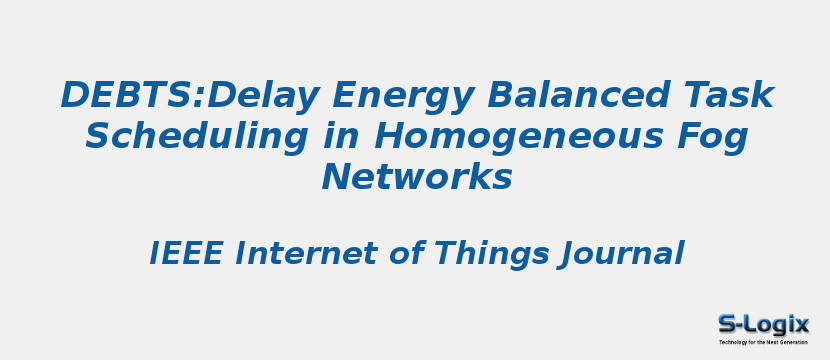Research Area: Fog Computing
Vehicular ad hoc networks, wireless sensor networks, Internet of Things, and mobile device-to-device communications can be modeled as different homogeneous fog networks, wherein similar terminals/things/devices/nodes are sharing their computation, communication, and storage resources in the neighborhood for achieving better system performance through effective collaborations. It is very desirable, but quite challenging, to simultaneously reduce service delay and energy consumption in such networks for delay-sensitive and energyconstraint applications, e.g., virtual reality and online 3-D gaming on mobile devices. In this paper, a cross-layer analytical framework is developed to formulate and study the balance between service delay and energy consumption. An effective control parameter V is derived to characterize their tradeoff relationship during dynamic task scheduling processes in fog networks. Combining this analysis with Lyapunov optimization techniques, a novel delay energy balanced tasking scheduling (DEBTS) algorithm is proposed to minimize the overall energy consumption while reducing average service delay and delay jitter. It is proved that DEBTS can achieve the theoretical [O(1/V), O(V)] tradeoff between these two performance metrics. Further, extensive simulation results show that DEBTS can offer much better delay-energy performance in task scheduling challenges. Specifically, for a typical V value of 4 × 10 4 , DEBTS can save 26% and 29% more energy, and at the same time, reduce average service delay by 29% and 32%, than traditional random scheduling and least busy scheduling algorithms, respectively.
Keywords:
Author(s) Name: Yang Yang; Shuang Zhao; Wuxiong Zhang; Yu Chen; Xiliang Luo; Jun Wang
Journal name: IEEE Internet of Things Journal
Conferrence name:
Publisher name: IEEE
DOI: 10.1109/JIOT.2018.2823000
Volume Information: Volume: 5, Issue: 3, June 2018, Page(s): 2094 - 2106
